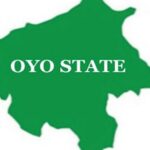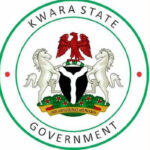The front-page lead story of the Daily Trust of February 25, 2024, forced me to write this, perhaps my zillionth column on the local government system. Its headline was: “7 years after, govs still violate S/Court ruling on LGAs.” That state governors can treat the ruling by the apex court with contempt and impunity is evidence that the progressive breakdown of our federal system of government has reached the threshold of national worry. At their convenience, the politicians choose between a nation of laws and a nation of men. In this extant case, it serves their corrupt interests to opt for a nation of men – the laws be damned.
I know I am beginning to sound like a pin stuck in the grove of a gramophone record. I keep coming to what we are doing to the local governments because I believe that if the local governments are allowed to properly function, they will help to ventilate our political system. The local government system called native authority, was effectively run by the colonial authorities to bring governance closer to the people. It is today emasculated and not allowed to function either as a third tier of government or as an administrative unit of the state governments set up and funded by them. Impoverished and unable to function as government at the grassroots, the local government is a burden the Nigerian state need not carry in a federation system, if our federal system of government must function in law, in fact, and in practice.
Many things are wrong with the local government system as it is. The local government reforms of 1976 were intended to make the local system function as effectively as the native authorities did in the first republic. But they do not. The local government system is neither the full responsibility of the Nigerian state nor of the state governments.
In our current revenue allocation formula, the local governments are funded from the federation account. They are, therefore, in our convoluted federal system, the responsibilities of the Nigerian state in terms of financing but are effectively owned and operated by the state governments. The state governors do what they wish with their local governments. They run them as fiefdoms without regard to the constitution and its requirements, hence their disregard for the decision of the Supreme Court handed down seven years ago. The results, hidden in plain sight, is a local government system that is dysfunctional and useless and are used by the state governors to reward their political thugs and jobbers.
The meat of the Daily Trust story is that seven years ago, the Supreme Court voided state laws that permit state governments to institute interim or caretaker committees to run the local governments councils pending the conduct of council elections as and when the state governors so wish. The newspaper found that 18 of the 36 states of the federation have ignored the Supreme Court ruling. Instead of elected local government chairmen and councillors, their 349 local government councils are packed with political acolytes unconstitutionally ruling the councils as caretakers.
This has been the condemnable practice going all the way to the second republic. It is wrong and it is unconstitutional. It is surprising that in our litigious nation, no one has challenged this unconstitutionality. The constitution has no provision for any form of caretaker or interim committees for federal, state and local governments. It should not be allowed to go on much longer.
The fate of the local government system looms large in the agitation for the restructuring of our federal system to bring it in line with best practices in federalism. President Bola Tinubu has said he is not in a hurry to undertake that task. It should not prevent the national assembly from taking up the local government system in its nth amendments to the battered constitution.
The first step is to settle where the local government belongs in our federal system of government. Should it be a third tier, or an administrative unit of the states as was the case with native authorities in the first republic? This has been a long and frustrating debate. We cannot have it both ways.
The Fifth Schedule to the constitution lists the 36 states constitutionally defined by their local government areas. Some states have additional local government areas called development areas. These were the local government areas created under Obasanjo’s watch. He rejected them because he believed the states had no powers to create them. He withheld local government funds from such states.
The state governors solved the funding problems by renaming them development areas instead of scrapping them. Since the development areas were not perfected constitutionally as local governments, they do not officially receive allocations from the federation account. Instead, the state governments share the allocations between the local government areas and the development areas created from them. Is this arrangement constitutional? Is it right to have a combination of local governments and development areas in some states and not in others?
Should we have a uniform local government structure throughout the country or should we allow each state to determine the structure best suited to its peculiar needs?
The funding of the local governments remains a problem. The Babangida administration settled for the financial autonomy of the local governments. This was the first attempt to elevate the local government system to a third tier of government. During his transition to civil rule programme, local government council allocations were released directly to them from the federation account. It pleased the state governors, military or civilian, not at all.
Financial autonomy is critical to the proper and successful functioning of the local government system as the third tier of government. At least it would prevent the state governors from continuing to steal the local government funds. The local government joint accounts committees under the constitution has become an obstacle to the financial autonomy of the local governments. Local government allocations are paid into the joint accounts from where they are disbursed to the local councils, albeit in abbreviated form determined by the state governors. The stealing of local council funds continues. Problem tweaked, not solved.
Several other attempts were made over the years to grant the local governments financial autonomy under the constitution – with the same result. They failed at the state houses of assembly at the instance of the state governors. We heard the voice of Jacob but felt the hairy hands of Esau.
We should end the dithering without further delay. It is neither necessary nor desirable to have three tiers of government. Two tiers will do nicely, thank you. Give the local governments to the states. Too many governments, 811, cannot be evidence that Nigeria is a serious nation. It is evidence that we do not take governance seriously enough. If too many cooks spoil the broth, then too many governments impede good governance.
 Join Daily Trust WhatsApp Community For Quick Access To News and Happenings Around You.
Join Daily Trust WhatsApp Community For Quick Access To News and Happenings Around You.


